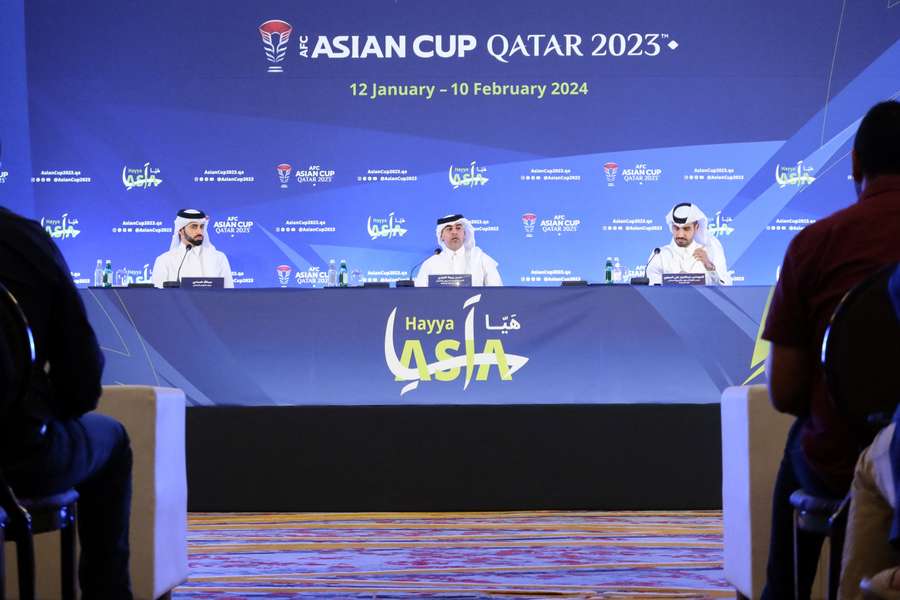Holders Qatar to host delayed Asian Cup as Gulf influence grows

Fuelled by massive sums of Saudi cash, following huge investment from Qatar and the United Arab Emirates, West Asia is now undoubtedly the dominant financial power in the game but it remains to be seen whether that transfers to pre-eminence on the pitch.
Qatar go into the tournament as defending champions having picked up their first title five years ago with a surprise victory over four-times champions Japan in Abu Dhabi.
Following China's withdrawal as hosts because of its rigid "zero-COVID" policy, Qatar will now also stage the tournament for the third time in its 68-year history.
China's footballing gold rush has petered out since it won hosting rights and Saudi Arabia has emerged as one of the most powerful forces in the game.
Emboldened by Qatar's success in hosting the 2022 edition, the Saudis emerged as the only candidate to host the 2034 World Cup, having already organised the Club World Cup and won the rights to host the 2027 Asian Cup.
Those moves have come after a major recruitment drive by Saudi Pro League clubs, led by the arrival of Cristiano Ronaldo, that has thrown further shade on their neighbours.
With many of his key players struggling for game time since the start of the foreign influx, however, former Italy coach Roberto Mancini might have his work cut out to lead the Saudis to their first title since 1996.
Qatar will be desperate to banish the memory of their miserable World Cup campaign but their preparations have been hit by the departure of coach Carlos Queiroz, who left last month after a year of mixed results.
The Maroons take on Lebanon on Friday in the opening game of the 18th edition of the continental championship at the Lusail Stadium, which hosted Argentina's dramatic World Cup final win over France in December 2022.
While the Gulf nations might be able to claim superiority in state-of-the-art sporting infrastructure, East Asia remains home to much of the cream of the continent's playing talent.
The Japanese will start the tournament as favourites with the decision to retain Hajime Moriyasu ensuring coaching continuity at the Samurai Blue.
Moriyasu, looking to become the first man to win the Asian title both as a player and a coach, masterminded impressive wins over Spain and Germany at the World Cup and oversaw a 4-1 thrashing of the Germans in a friendly in September.
Jurgen Klinsmann has made no secret of his desire to end South Korea's 64-year Asian Cup title drought and the German World Cup winner will look to captain Son Heung-min to fire his side's challenge.
Iran, a perennial Asian power, reached the semi-finals in 2019 under Queiroz and Amir Ghalenoei has an experienced squad full of players such as Ehsan Hajsafi, Alireza Jahanbakhsh and Mehdi Taremi who play their club football in Europe.
Australia's run to the last 16 at the 2022 World Cup was built on a tight-knit squad and the Socceroos could challenge for another title to match their 2015 triumph on home soil if they can build momentum and find enough goals.
China still do not have a team that anywhere near matches their ambition, while the world's most populous nation, India, will be represented but are highly unlikely to still be around when the prizes are handed out.
Palestine managed to qualify for the 24-team tournament despite the many challenges they face and are likely to attract a huge amount of support in Qatar as the war continues to rage in Gaza.
